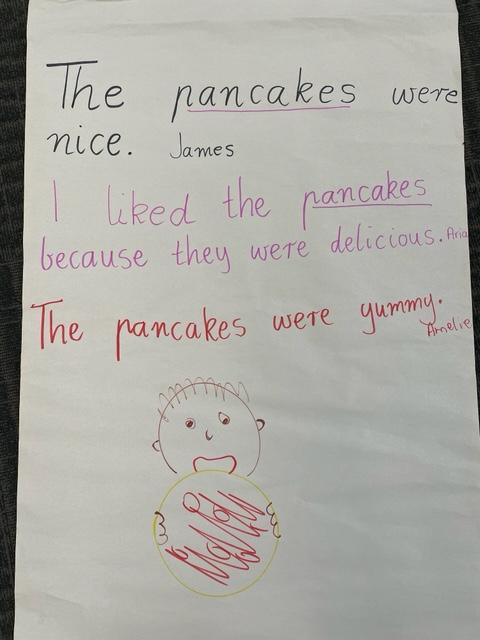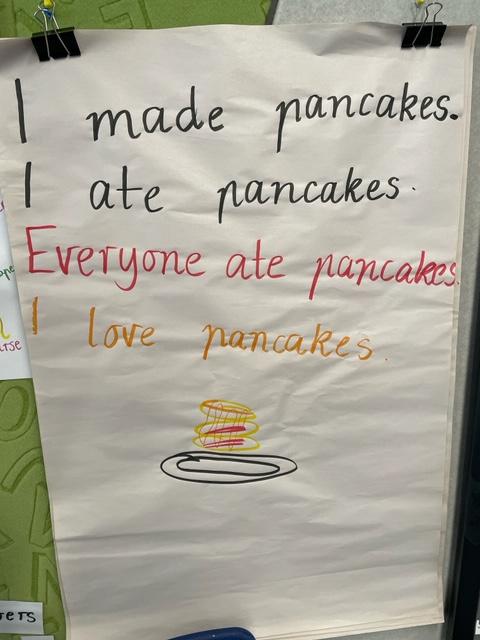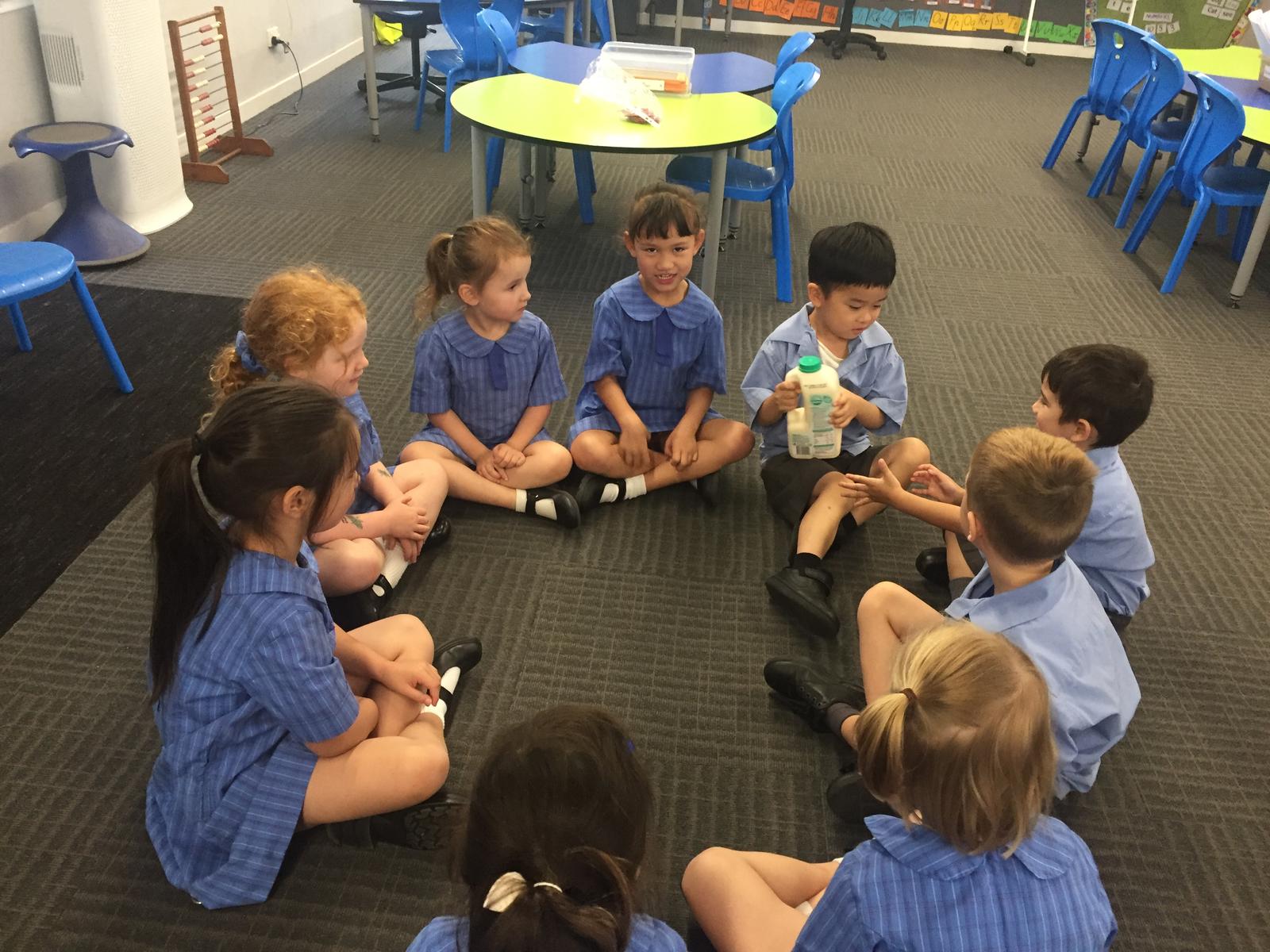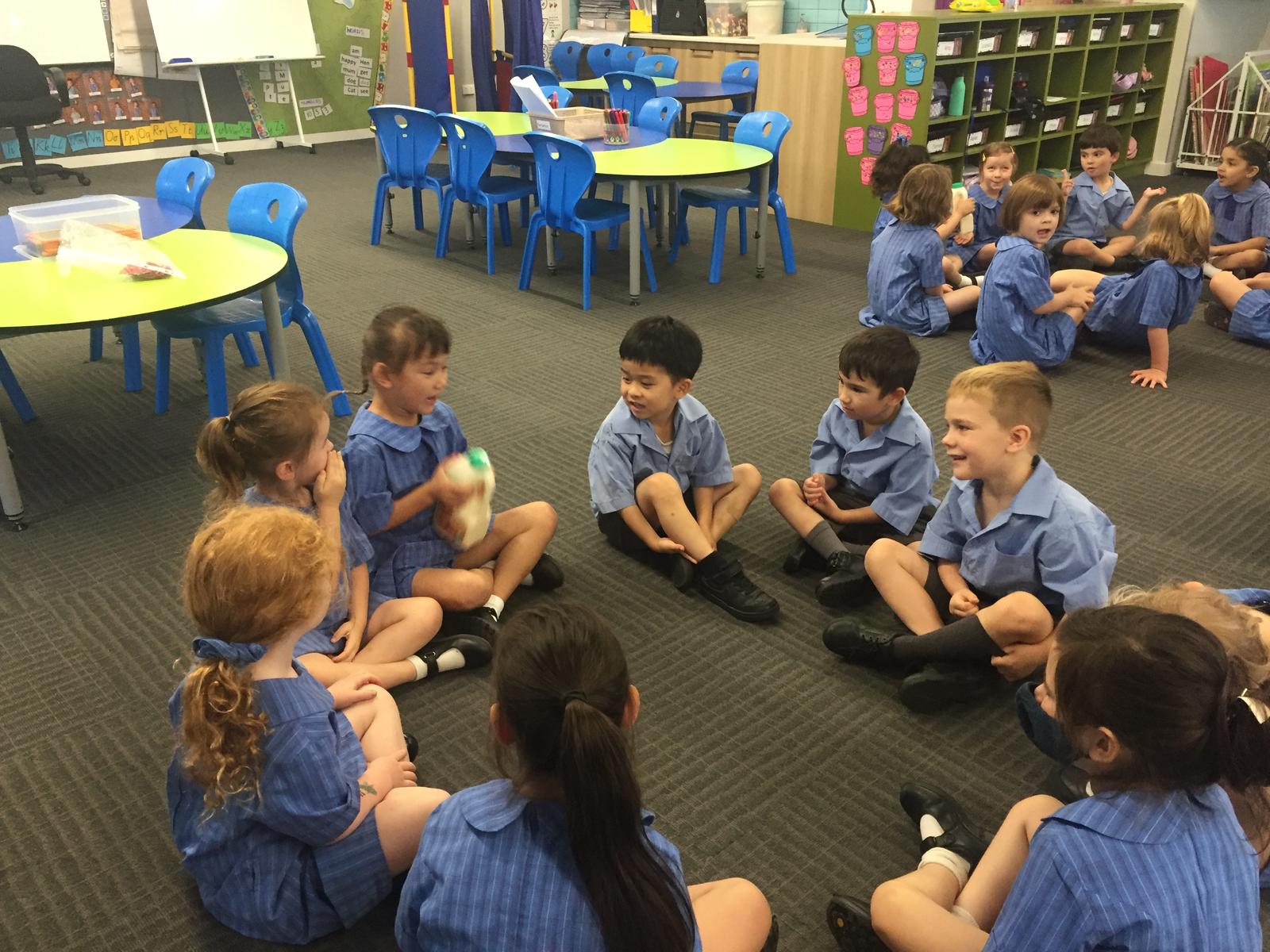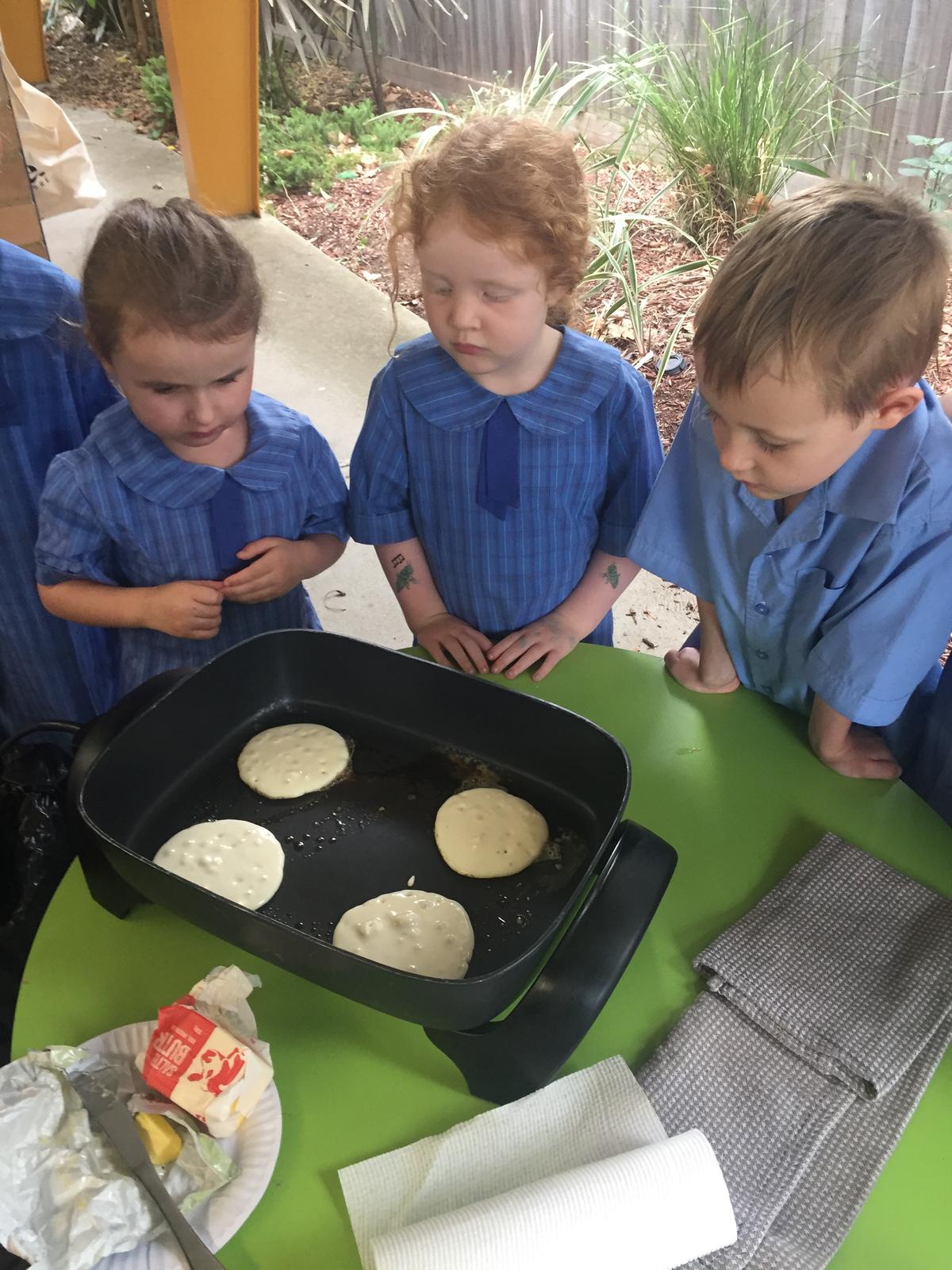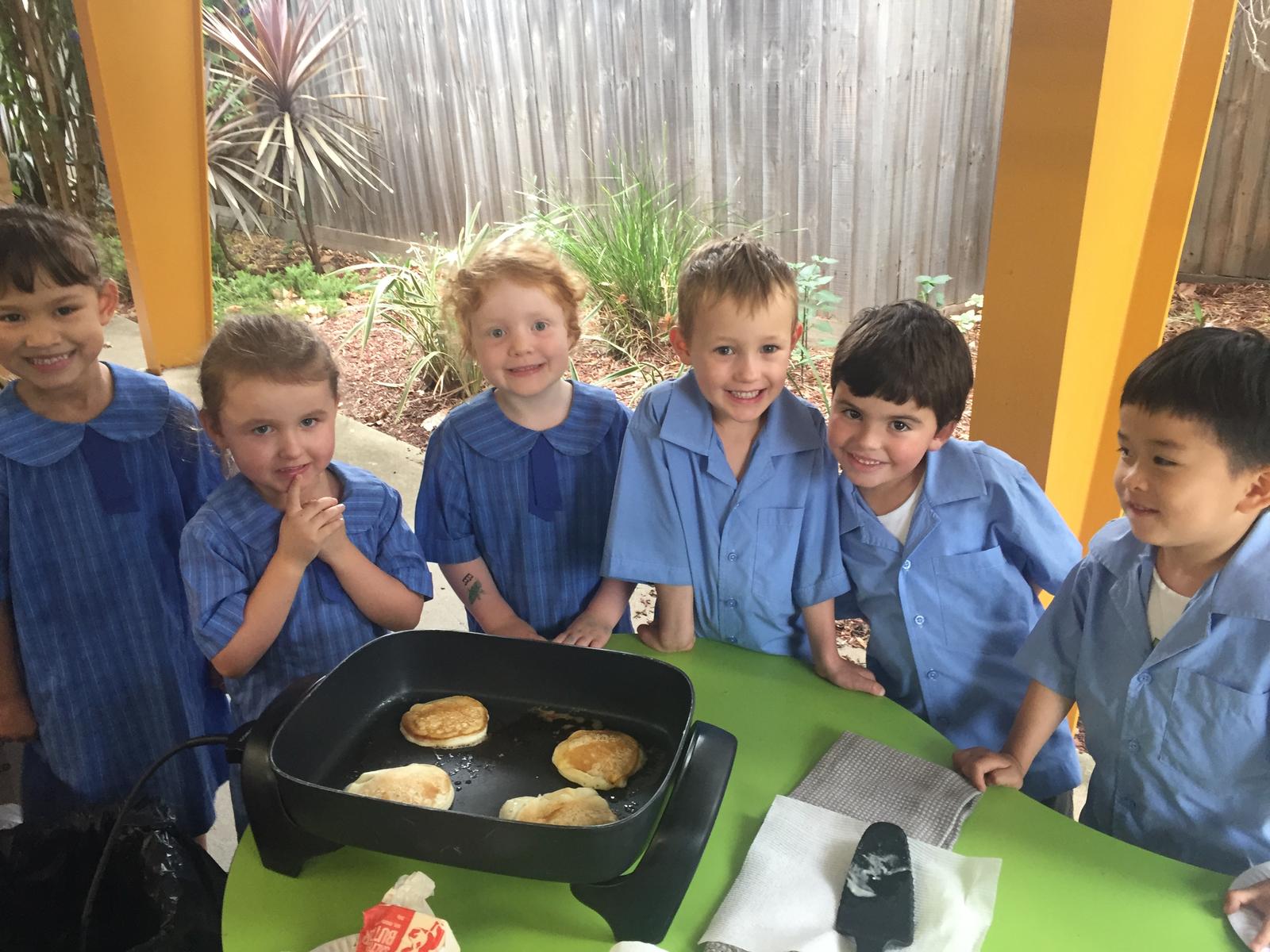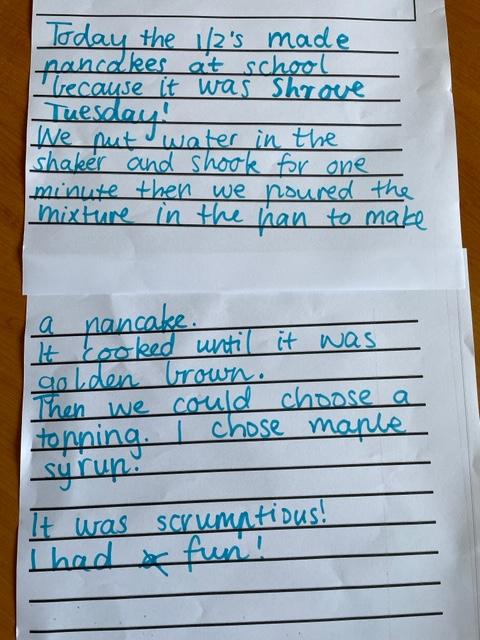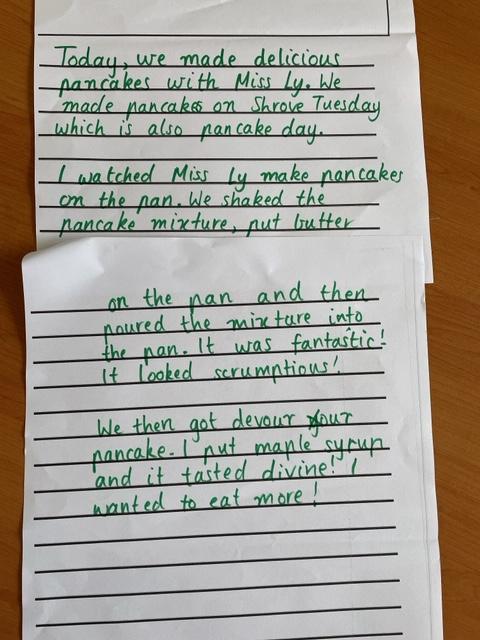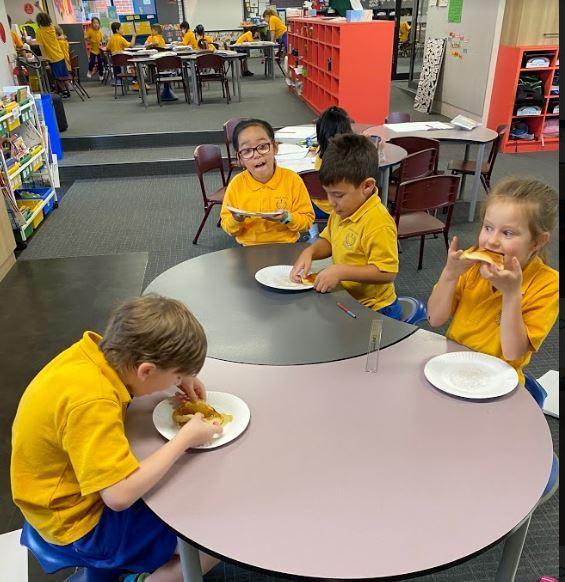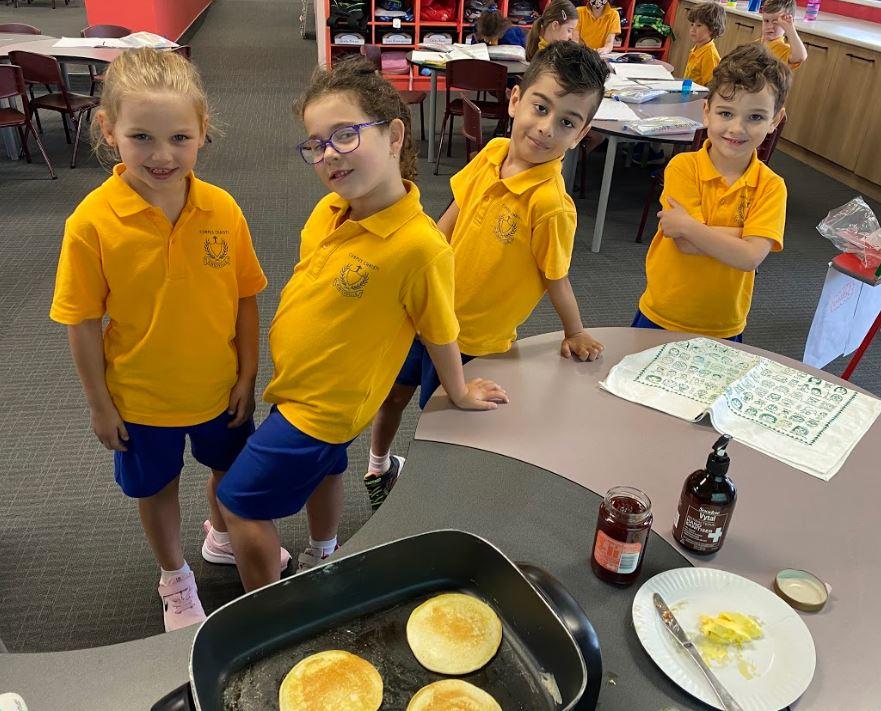Learning and Teaching
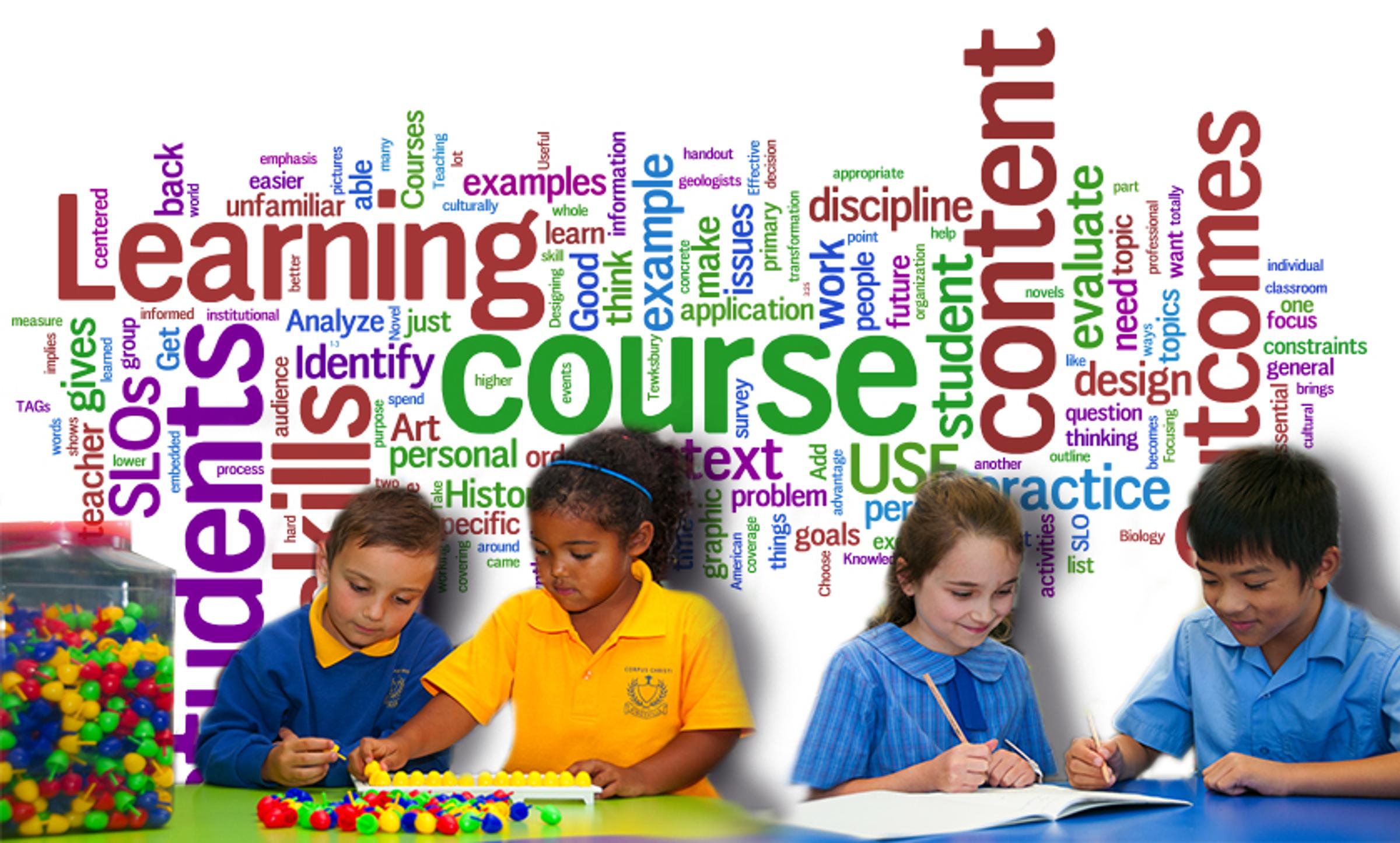
Literacy - Language Experience
In Literacy, we use a range of teaching strategies to ensure every child reaches their potential. One of the strategies used often in the Prep and Year 1 and 2 communities is Language Experience.
The focus of Language Experience is on involving students in a shared experience. As a result of the shared experience, oral language is generated, extended and shaped and a written text is created. Yesterday, the children participated in an experience about Shrove Tuesday.
The teachers wrote down the actions they took to make the pancakes, modelling familiar and new vocabulary that the children could use in their own writing pieces. The images below show the writing that took place as a class.
Year Prep
Year 1 and 2
The Year 1 and 2 children wrote their own pieces about the pancake making. They will continue to discuss the experience of making pancakes in one of their literacy activities.
Oral language serves as the foundation for reading and writing skills. Through oral language development, children can become successful as they move through a variety of academic concepts and challenges in school. And when they can communicate effectively, they can confidently connect with peers, teachers and different people as they mature into successful adults. At home, talking with your child about their day at school or what is happening in the world helps them to have ideas and words to express what they are doing and how they are feeling.
Here are some specific oral language development activities that can help your children as they develop into effective communicators:
- Expose children repeatedly to a variety of words, through conversations, reading books, and storytelling. These activities help children absorb new words, enabling them to communicate more clearly.
- Observe your child's interests. Incorporate your child's favourite things into activities instead of forcing something that is not of interest. Children tend to learn more effectively when learning involves the things they love.
- Interact with your child through plenty of conversation. Expand on what your kids say. Ask a lot of questions about the things that interest them.
- Oral language development isn’t just about giving instructions. Remember that children love to play. If you incorporate playing into opportunities to learn language, children become more engaged.
- Children learn best by hearing a broad range of words connected with concrete examples. Remember that in order to learn new words, quality is just as important as quantity.
- Expand children's knowledge by talking about a wide range of topics that pique their interest. Give them different kinds of books to read. Sing a bunch of songs and nursery rhymes.
- Take your child with you when you leave home, if possible. When going to the supermarket, encourage children to speak about what they want to buy. Playing with real objects can help reinforce oral language development.
- Ask children questions that will draw out their opinions and ideas about things that interest them, like sports, animals, school events, etc.
- Alert your child to an article or picture in the newspaper that may interest them
- Turn off the TV and take turns to tell some NEWS from the day.
- Play talking/memory games such as ‘I went to the zoo and I saw …’
- Play cards or board games. Give the children opportunities to explain the rules and organize the games.
Deborah Courtney
Director of Learning and Teaching

